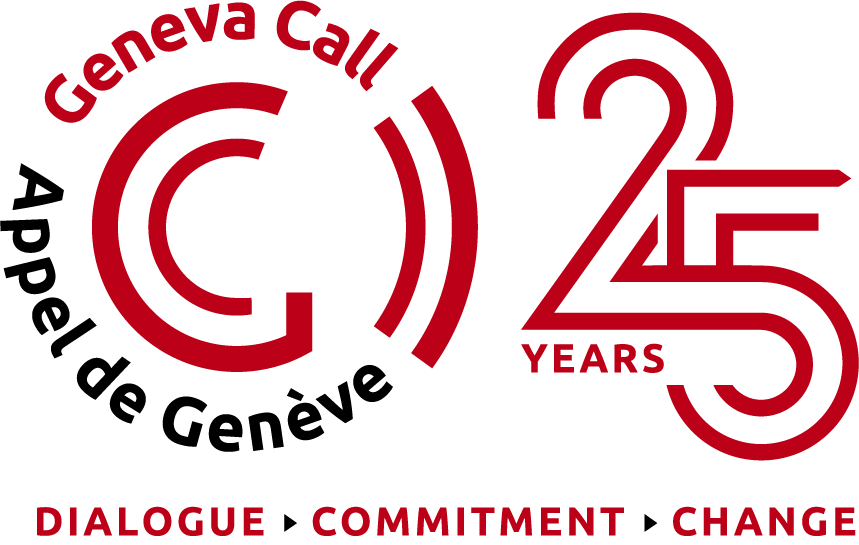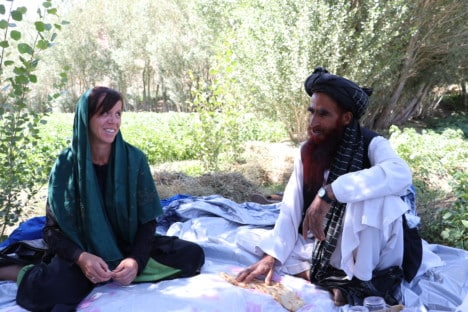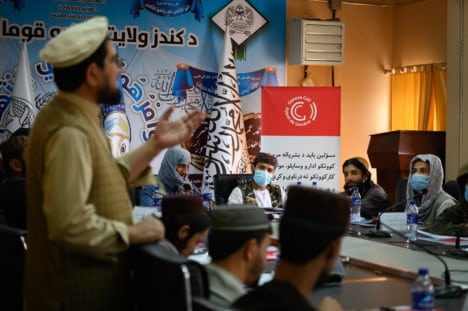Afghanistan
Thematic areas: Principled Law Enforcement, Social Cohesion, Displacement, Humanitarian Norms, Humanitarian Access
Since the Taliban’s ascension into the de facto government of Afghanistan in August 2021, their acts have been those of the state. This obligates the Taliban to respect humanitarian norms, ensure peace and stability, and strive for equality and inclusion.
The humanitarian situation in the country worsened due to multiple factors in 2025, including the unprecedented number of Afghans returning and/or being repatriated to Afghanistan from neighbouring countries, Europe and beyond. Compounding this crisis are natural disasters, especially earthquakes and the worsening effects of climate change, manifesting through droughts, floods, and increasing water scarcity. Moreover, economic shocks, aid cuts and the current policy environment contribute to rising food insecurity and associated protection risks across vast segments of the population. 2025 saw the sharpest surge in malnutrition ever recorded. The complex situation isolates vulnerable Afghan groups, such as religious and cultural minorities and women and girls. Protection concerns encompass gender-based violence, abduction, forced displacement, child marriage, discrimination, property theft, access restrictions, and humanitarian access challenges. Against this background, civilian protection remains a high concern with other marginalized groups vying for inclusion.
Global and regional dynamics also influence Afghanistan’s humanitarian crisis. With Western powers disengaging and no recognition of the Kabul de facto authority, regional actors are becoming increasingly involved. Afghanistan’s situation remains highly fragile, demanding dialogue, rights protection, and community cohesion.
A public statement issued in Geneva in February 2022 by a high-level delegation of the Taliban on the protection of medical missions, humanitarian access, and education made them more aware of IHL obligations and more committed to their implementation.
Geneva Call’s activities in the country
Since 2018, Geneva Call has engaged with the Taliban and IEA structures. In 2024, the organization worked with key IEA ministries, providing training and raising awareness on international humanitarian and human rights law. These sessions targeted the de facto police, commanders, and other frontline personnel, focusing on law enforcement, police checkpoint management and humanitarian access, contributing to improved civilian protection. Geneva Call also engaged religious scholars and decision-makers to interpret and promote humanitarian norms through Islamic teachings and collaborated with academic experts to incorporate international law principles into university curricula. At the community level, Geneva Call empowered local organizations and structures in promoting intra-communal dialogue and social cohesion.
Geneva Call’s major achievements include advocacy for the adoption of uniforms for police officers, enhancing identification and accountability, and improvements in police conduct, leading to better treatment of civilians at checkpoints and detention facilities. Community feedback indicates improved respect for women and vulnerable groups, fewer incidents of violence, and smoother checkpoint processes. Some religious authorities increasingly supported humanitarian principles, incorporating them into sermons and academic discussions, strengthening advocacy for civilian protection and humanitarian access.
Humanitarian Access Advocacy:
– Geneva Call successfully engaged with the Ministry of Economy and the Afghanistan National Disaster Management Authority to facilitate humanitarian access, helping to demystify the operational and humanitarian principles under which NGOs and INGOs operate in the country and helping to promote a dialogue on principled humanitarian access.
With the support of the Afghanistan National Disaster Management Authority, a multi-stakeholder workshop on humanitarian access was held at the provincial level to improve coordination and make it easier for communities to receive humanitarian aid. Provincial sectoral directorates took part to ensure that aid could reach those who need it most. The workshop helped strengthen collaboration between local authorities and humanitarian actors, identified key challenges to access, and developed practical solutions to address them.
Training Programs for IEA Policemen:
– Geneva Call implemented impactful training programs for IEA policemen in Kabul, Kandahar, Balkh, Bamyan, Ningarhar and Kunduz, emphasizing humane treatment of civilians and suspects.
– Extended training to police officers, prison staff, and patrol members, resulting in notable positive developments.
– Expanded the collaboration with the Ministry of the Interior’s police training academies in Kabul, Kandahar, Nangarhar, Kunduz and Balkh, resulting in an agreement to train trainers on humanitarian norms and principled law enforcement.
The Police Training Academy has included Geneva Call materials in its training programs for police officers. After receiving the Geneva Call training on law enforcement and checkpoint management, the Academy organized sessions to train officers using this material.
– Interviews with participants highlighted improved interactions and understanding of humanitarian principles.
– Positive outcomes were observed, with participants showing a shift in thinking and behavior towards improved treatment of detainees.
– Led summer and winter schools on humanitarian norms for university professors and students in collaboration with the Ministry of Higher Education.
Key figures
Over the past 3 years, Geneva Call Afghanistan teams have:
• Sensitized over 6,000 police officers on principled law enforcement governed by international norms and Islamic principles.
• Engaged almost 1,500 religious scholars, leaders, mosque ulema and educators in interpreting IHL/IHRL norms and promoting social cohesion through Islamic teachings.
• Reached up to 10 million Afghans through media campaigns on social cohesion, checkpoint procedures, climate-induced conflict, and humanitarian access.
Read our Annual Report to learn more about our work in 2024.
Contact information:
Lucia Henriksson – ACTING COUNTRY DIRECTOR
lhenriksson@genevacall.org


